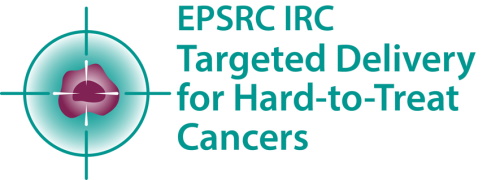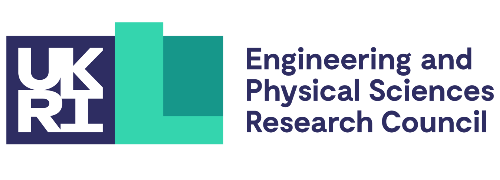
Programme Manager Dr Amanda Fuller reflects on the important purpose and ambition of the IRC and why its multi-disciplinary, dynamic and diverse structure brings both benefits and challenges.
The mission of the Interdisciplinary Research Collaboration (IRC) in Targeted Delivery for Hard-to-Treat Cancers is to develop new technologies to deliver drugs effectively for the treatment of three cancers: mesothelioma, pancreatic cancer and glioblastoma (a brain cancer). Whilst our technologies can all be classed as platform technologies, applicable to multiple cancers and other conditions, focus on specific cancers is necessary in order to speed up the journey to the clinic.
While this rich mix of expertise helps to progress the work of the IRC – understanding the translation path is where you get the benefits of bringing all the specialisms together under the one umbrella – it also brings challenges. It is well known that clinical translation is difficult but within the IRC we also face another ‘translation’ challenge; in short, we are trying to get engineers and chemists and chemical engineers to deliver something for a medical purpose. All parties need to be able to speak and understand the language of the other party. Dr Amanda Fuller, Programme Manager
One of our key goals is to provide a model to expedite the transition of technologies from the laboratory to the clinic by supporting researchers to transcend the stepping-stones of translation. The IRC aims to ultimately progress one or more of its technologies to the verge of clinical trial.
The IRC is an ambitious and challenging programme with a very well-defined, valid purpose. The underlying aim of trying to better deliver drugs makes perfect sense to me as an engineer – focussing on drug delivery is a great addition to the suite of new therapies for cancers. By encapsulating the drugs in physical or chemical vehicles we can overcome barriers put up by the tumours or the body itself preventing those drugs getting to where they need to be. Additionally, by targeting the delivery so that the cancer drugs only act at the site of the tumour, we can reduce some of the hideous side effects associated with chemotherapy.
The IRC comprises specialists from across a range of disciplines as well as clinicians who together provide a holistic approach to the development of transformative targeted drug delivery platform technologies that are challenge-driven and clinically relevant. Our programme spans a number of universities across the UK, including Cambridge, Birmingham, Glasgow and Imperial and UCL in London. We have more recently undertaken a partnership with a team at Nottingham University and we are looking to build more collaborations.
Our research cohort is not only geographically dispersed but multi-disciplinary and international with its structure rooted in the specialisms of our academic and clinical leads: Prof George Malliaras – implantable electrophoretic devices; Prof Oren A. Scherman – injectable hydrogels; Dr David Fairen-Jimenez – metal-organic frameworks (MOFs); Prof Colin Watts – clinical translation. Dr Ronan Daly heads up validation and manufacturing innovations, a cross-cutting activity throughout all the work streams to support the journey from the laboratory to the clinic. The engine of the IRC is powered by our post-doc research associates who are motivated and incredibly hard working; their commitment is what drives the programme and enables our achievements.
While this rich mix of expertise helps to progress the work of the IRC – understanding the translation path is where you get the benefits of bringing all the specialisms together under the one umbrella – it also brings challenges. It is well known that clinical translation is difficult but within the IRC we also face another ‘translation’ challenge; in short, we are trying to get engineers and chemists and chemical engineers to deliver something for a medical purpose. All parties need to be able to speak and understand the language of the other party. As the programme manager of the IRC, my role requires having a good grasp of the numerous activities of our large and dynamic programme and entails working both at a high strategic and practical logistical level to, hopefully, provide synergy.
While there are difficulties to overcome, one of the benefits of the IRC’s approach is the creation of a faster pathway to develop and validate drug-delivery technologies. Our structure combines researchers and medics to support the academics to translate their technologies through to the clinic. The clinicians in each of the IRC’s three delivery fields have experience of other clinical trials and help to focus research efforts, pulling our technologies through to patients as speedily as possible. They also provide emotional focus for the team – the IRC’s Stefan Marciniak, Professor of Respiratory Science at the Cambridge Institute for Medical Research, speaks very movingly and eloquently about mesothelioma, urging our researchers to push on because the life expectancy of people diagnosed with mesothelioma is incredibly short, from 12 to 21 months*. We all very much hope that speed is one of the benefits of the IRC’s approach and our technologies can support the work of clinicians and, ultimately, help to improve survival rates for cancer patients.
* https://www.mesotheliomahope.com/mesothelioma/prognosis/life-expectancy/


